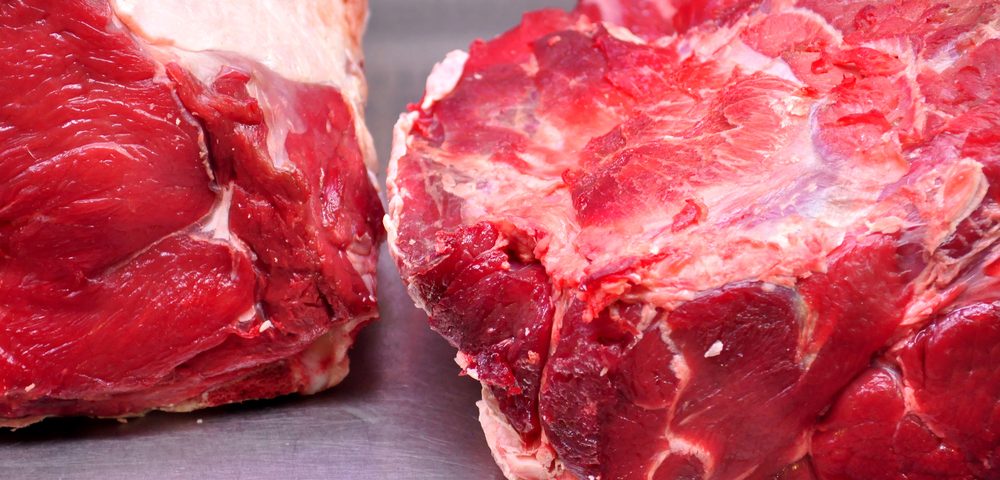Eating large quantities of red meats, particularly those that are unprocessed, might be linked to an increased risk of diverticulitis, a common inflammatory bowel disease (IBD), reports a study published online recently.
The study, “Meat intake and risk of diverticulitis among men,” was published in the journal Gut. It also suggests that replacing one daily portion of unprocessed red meat with poultry or fish may lower the risk of developing diverticulitis by 20%.
Diverticulitis has been linked to smoking, taking anti-inflammatory drugs (particularly non-steroidal drugs), being physically inactive and obesity. But besides these links, not much is known about the causes of this condition. Diet is thought to play a big part, and an adequate fiber intake might be a way to prevent it, but other dietary factors are still being explored.
The research team evaluated how total dietary red meat, poultry and fish intake affected 46,500 men’s risk of developing diverticulitis. The sample was taken from the Health Professionals Follow-up Study.
Men included in this study were 40-75 years old when they first joined the HPF study between 1986 and 2012. The men were asked about their standard size portions of red meat, processed meat, poultry and fish, every four years during the 26 years the study was ongoing. In total, 764 men developed diverticulitis at some point.
Men eating higher amounts of red meat also were found to use anti-inflammatory drugs more frequently, as well as painkillers. These men also smoked more and were less likely to exercise vigorously. Their fiber intake also was low.
Men eating more fish and poultry were more likely to exercise vigorously, take aspirin and smoke less. After accounting for these potentially influential factors, total red meat intake was linked to increased diverticulitis risk.
Men who reported the highest level of red meat intake had a 58% increased risk of diverticulitis, with each daily serving linked to an 18% increased risk. This risk was maximized at six servings weekly.
The link to diverticulitis was strongest for unprocessed red meat. The study found that replacing only one meal a day, for fish or poultry, could lower the risk by 20%, regardless of weight or age.
This study was not able to clarify how red meat intake affects diverticulitis’ risk, and researchers advise that more research is needed here. However, inflammatory chemicals, such as C-reactive protein and ferritin, have been found in red meat, and have been tied to heart disease, stroke and diabetes.
The researchers contemplated if the type and diversity of bacteria colonizing the gut (gut microbiome) also could play a role in how diverticulitis develops. With red meat altering the gut microbiome, this potentially could affect immune responses and the integrity of the gut lining. Moreover, higher cooking temperatures necessary for unprocessed meat also might affect bacterial composition or inflammatory activity.
Because this was an observational study, full conclusions might not be drawn about the disease’s cause and effect. In addition, only men participated in the study, so the results may not apply to women. Still, the findings “might provide practical dietary guidance for those already at risk of diverticulitis,” the researchers said in a press release.
Diverticulitis occurs when the small pockets or bulges lining the intestine (diverticula) become inflamed. It is relatively common, accounting for more than 200,000 hospital admissions yearly in the U.S., costing up to $2 billion.
New cases of diverticulitis are on the rise, particularly among youngsters. It is estimated that about 4% of those who have the disease eventually develop severe or long-term complications, like perforations in the gut wall, abscesses and fistulas, which are abnormal connections between two hollow spaces.

